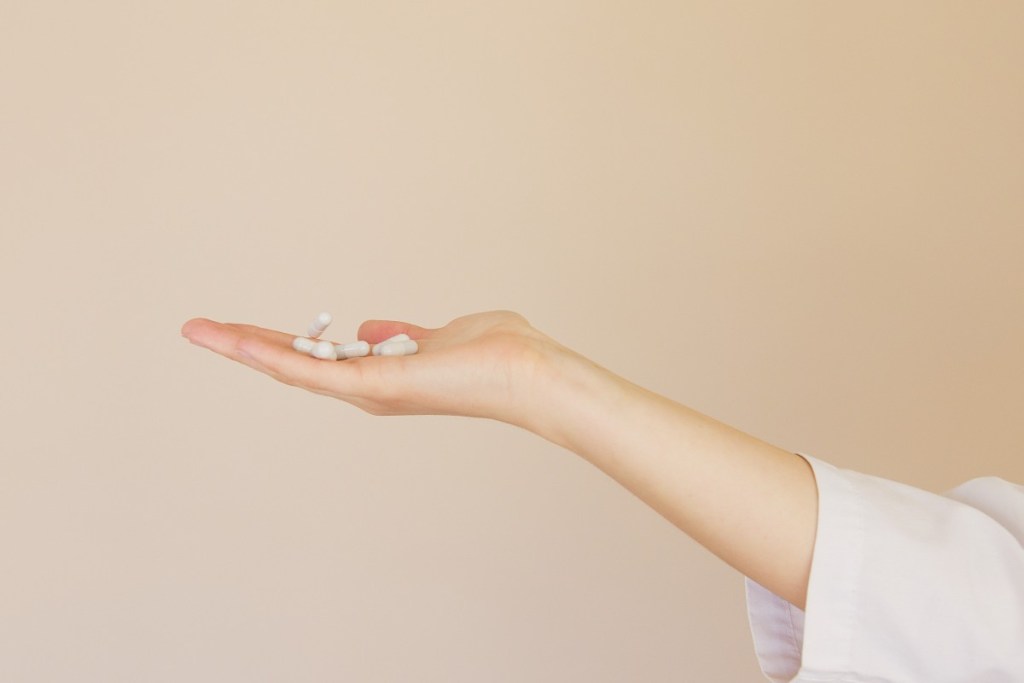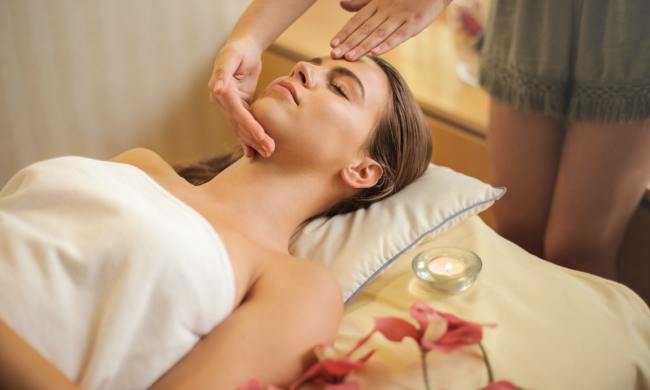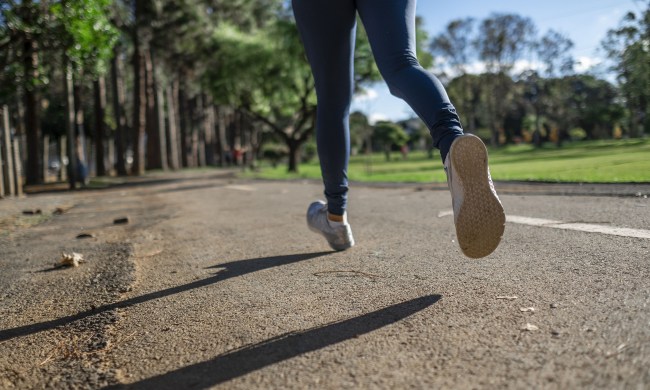Anxiety affects thousands of Americans each year, and every person experiences it differently. As a result, there’s no one-size-fits-all treatment for the mental health condition. People may do therapy in person or via text message. There are apps to help calm you down, and some people swear by aromatherapy. Others opt for natural supplements.
Magnesium and valerian root are two popular natural supplements for anxiety. The supplement industry can feel like uncharted water, but there is some research to back their effectiveness. A 2017 review concluded that magnesium supplements could reduce anxiety. A double-blind study from the same year indicated that the use of valerian root could help treat obsessive-compulsive disorder, which involves people acting on compulsions to relieve obsessions (or anxiety-induced thoughts).
Let’s discuss why people may want to turn to herbal supplements for anxiety and safety considerations to keep in mind before taking them.

Why people take natural supplements for anxiety
Everyone’s motivations for using a specific anxiety treatment are different, but there are some common ones for choosing herbal supplements.
Supplements are trending in general
Grand View Research valued the global dietary supplement market value at $140.43 billion in 2020 and predicts it will expand by nearly 9% from 2021 to 2028. The National Institute of Health’s Office of Dietary Supplements says interest in dietary supplements has increased during COVID.
Though much of this interest may have been more about preventing and treating the virus, the overall buzz about supplements could be driving people to think about other uses for them. Since it’s likely no surprise that adults have experienced anxiety during the pandemic, some may want to try natural remedies like supplements.
Fewer side effects
Pharmaceutical interventions, such as SSRIs, are commonly used to treat anxiety. These methods can be effective, and there’s nothing wrong with going this route if it works for you and you are comfortable with it. However, side effects, like withdrawal, can occur. A 2020 study on valerian root noted that some people seek alternatives to prescription drugs to improve anxiety and related issues, like sleep issues. There’s some evidence natural and herbal supplements may fit that bill, like this 2010 review of 24 studies.
More cost-effective and accessible
Prescription drugs can be expensive, particularly if you have no health insurance or a high-deductible plan. For example, Prozac costs nearly $500 for a 30-day supply. You can get 50 to 60 capsules of valerian root or magnesium for less than $30 at a health store. When cost is of concern, people may wish to go the natural route first. What’s more, you’ll need a provider to prescribe medication for your anxiety, which can take months if you are a new patient. On the other hand, you can more easily purchase magnesium or valerian root supplements over-the-counter. It’s a good idea to still speak with your provider first.
Holistic approach
If you’re struggling with anxiety and depression, a psychiatrist may prescribe a medication for each. However, some experts say that magnesium may help with a host of issues that often coincide with anxiety. A randomized clinical trial published in 2017 suggested that magnesium supplementation could aid in depression treatment. Though some say valerian root may help with sleep issues, a 2015 review concluded there was insufficient evidence to back that claim.

Safety considerations
There are many claims about the healing powers of supplements. While some are backed by data, it’s essential to keep a few precautions in mind.
- Talk to your doctor. Magnesium and valerian root aren’t for everyone and may interfere with other medications you may be taking. Speaking with a provider first can ensure you stay safe and healthy.
- Ensure you’re taking the correct dosage. The daily recommended magnesium dosage for adult men is between 400 and 420 mg per day and 310 to 320 mg per day for women, according to the National Institutes of Health. For valerian root, experts generally recommend taking 120 to 200 mg three times per day.
- Note side effects. Though people often turn to supplements to minimize potential side effects, they can occur. For example, valerian root may cause drowsiness. Speak with your doctor about any issues you are having.
Living with anxiety is not easy, but help is available. There are several treatments, and there’s a rising interest in natural supplements, including valerian root and magnesium. Still, you should always consult with a provider before taking them to ensure you’re taking the right amount and that it won’t interfere with any prescription medication. Keep in mind supplements are not necessarily a cure-all, but they are one more option to explore when seeking relief from anxiety.
BlissMark provides information regarding health, wellness, and beauty. The information within this article is not intended to be medical advice. Before starting any diet or exercise routine, consult your physician. If you don’t have a primary care physician, the United States Health & Human Services department has a free online tool that can help you locate a clinic in your area. We are not medical professionals, have not verified or vetted any programs, and in no way intend our content to be anything more than informative and inspiring.



